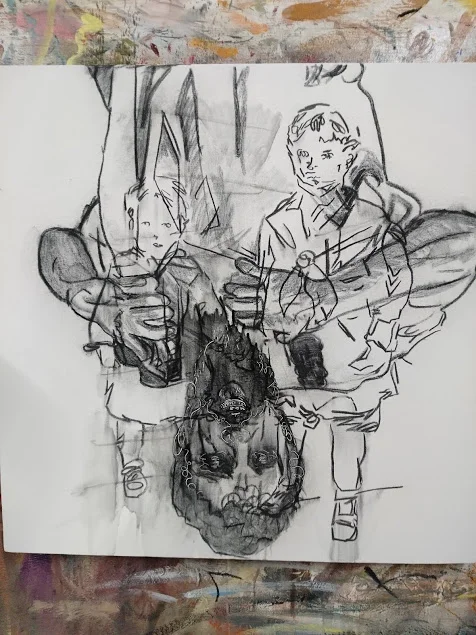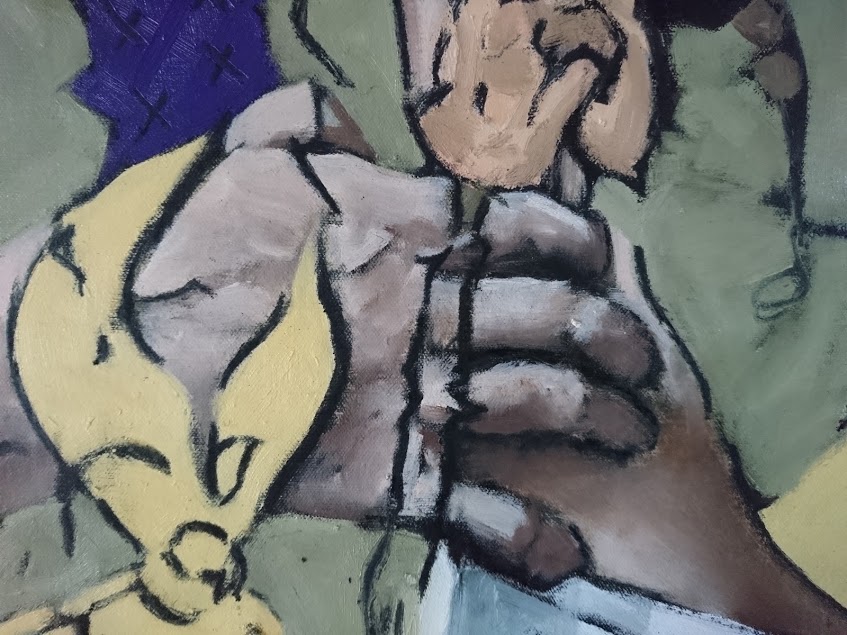For the past few years I've been interested creating work loosely based on the works of Sophocles and in particular the plays surrounding Oedipus. Yes there is the obvious notion of trauma involved in realising you have murdered your father and married your mother etc but this isn't really of interest. I have started a few times to make work using imagery form an 1896 Dutch production of "Oedipus Rex" but all have fell short of what I wanted to achieve.
Louis Bouwmeester as Oedipus in a Dutch production (c.1896)
Failed Study of Oedipus from 2017
"Oedipus and the Sphinx", Gustave Moreau, 1864, The Metropolitan Museum of Art, New York
The character of Oedipus has appeared in art many times. Some focused on the character's known genius and skills as a soldier / king to be like Moreau's "Oedipus and the Sphinx". Renoir's take on the myth looked at the unravelling scene of when Oedipus the king emerges from his palace having blinded himself for realising his deeds. Filled with light and energy Renoir's work is chaotic and seems to put Oedipus' kingdom of Thebes into a frenzy.
"Oedipus Rex", Pierre-Auguste Renoir, 1895, Private Collection
One painting that has a different stance comes earlier than Moreau and Renoir yet looks at later circumstances. "Oedipus Cursing His Son, Polynices" by Fuseli looks at the epic poem 'The Thebaid' where Oedipus curses his sons for disrespecting him by praying to Zeus that they (Polynices and Eteocles) died by each others hand.
"Oedipus Cursing His Son, Polynices", by Henry Fuseli, 1786, oil on canvas - National Gallery of Art, Washington, DC, USA
Polynices and Eteocles roughly translate as 'Manifold Strife' and 'Truly Glorious' respectively. I did a small sketch a few years ago of a photo taken in 1911 of past family members from when they were children and hadn't developed it any further until it came to mind as a stand in for the two sons of Oedipus (although one is actually a little girl). I've decided to merge the Dutch production image of Oedipus and the personal photo.
A mixing of the translations of Polynices and Eteocles serves as the working title for this painting in progress:
"A Manifold and Truly Glorious Strife"
A WORK IN PROGRESS








